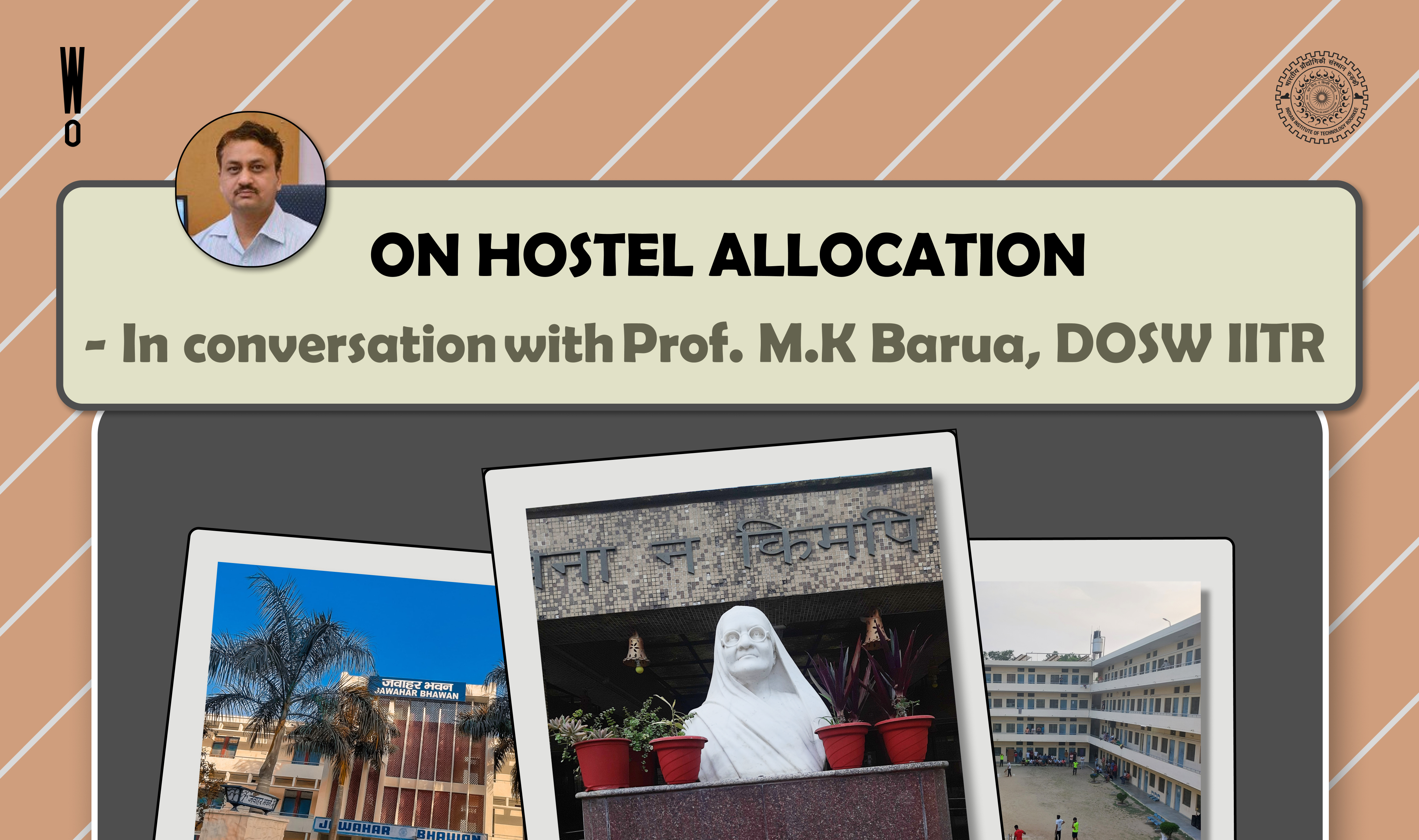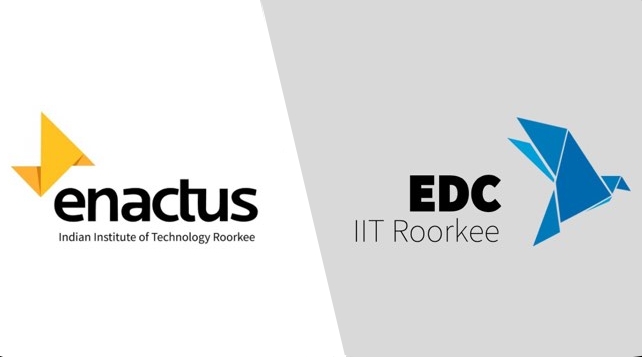

Body of IITR

Following up on our conversation with Mr. Azam Ali Khan, the CEO of TIDES business Incubator, we caught up with Ankit Bagaria, the head of Enactus, and Aayush Gupta, a member of the Entrepreneurship Development Cell of IIT Roorkee to chat about the role of student bodies in fostering and encouraging the entrepreneurial culture at R. Here are some excerpts from our conversation.
Aayush: When it comes to students of an IIT, I have a belief that we are expected to generate jobs instead of following other people or joining other companies. We want to use this opportunity of studying at a premier institute to make lives easier by coming up with new and better products and services, and entrepreneurship is an exciting way of doing just that. The role of EDC, in any campus, is to generally promote entrepreneurship and to make people aware of what entrepreneurship exactly is. In essence, we want to develop an environment where innovation and new ideas are celebrated.
Aayush: So basically, we organise a couple of major events in the campus, like TEDx, or the upcoming eSummit; apart from which we have initiatives like the Startup Internship Program. I believe that bringing in more and more people working in startups to our campus to tell us how a startup actually works will encourage students here to start their own thing in the future. Apart from the events we are also working on a portal through which we want people to engage in fruitful networking. Through these events and initiatives we create a huge amount of resources for people to rely on. We have a huge network of experts, too, so that whenever a student needs any kind of help, you know, if he wants to connect to some alumni or someone else, to talk about his questions related to entrepreneurship, he can openly come to EDC, and we’ll get him connected!
Ankit: So basically when you talk about entrepreneurship in general, there is no set way of learning the concepts, you know? There has to be a certain practice, in a way, of dealing with and actually ‘doing’ what entrepreneurship entails. Enactus, which is short for ‘Entrepreneurial Action for Us’, is a global organization that promotes social entrepreneurship among students all over the world, by giving the students the opportunity to perform in live projects. That, I believe, is where Enactus has a huge role to play.
Ankit: Social entrepreneurship, in a general sense, includes the business-oriented or entrepreneurial activities that focus on the impact on the sustainability of the commercial ecosystem, before revenues or profits.
Aayush: One important example that comes to my mind is of Tesla. Tesla made its first car- an electric car- and they had this vision that they wanted more and electric cars in the world. Now they could’ve easily made a lot more money out of being a monopoly, but they openly shared their design so that they could have this ‘movement’ on a big scale so that people from other companies can also start building electric cars!
Ankit: Exactly! We don’t want to compromise the chance of having a healthy competition for our own profits.
Aayush: Entrepreneurship, to be frank, is basically a journey. I think the role of EDC is to get a person from zero to one, and that of TIDES is to get him from one to a hundred! For example, if a person is interested in starting up but is, for the lack of a better word, clueless, EDC’s role is to tell him about entrepreneurship, to help him realise his ideas, to connect him to potential mentors, and to help him build a team. Once he has an idea and wants to legitimately materialize it, he can then go to TIDES, because TIDES has a tremendous amount of resources. They can get funds, a great office space, and subsequent mentorship from TIDES, while we supplement their role by making the initial rudimentary steps a little easier.
Ankit: In addition to what Aayush says, campus groups like ours are catering to a different idea altogether. Say I have an idea but I don’t know how that idea needs to be developed, EDC needs to come into the picture when someone is trying to develop on that idea. In addition to this, even if students don’t have ideas, groups like Enactus, or even ShARE, for that matter, can help them by giving them live projects and case studies to try their hand at real life problems.
Ankit: Currently, we at Enactus have a few live projects, one of which is to empower the farmers, another deals with waste paper management and creating employment out of it, yet another deals with the social inclusion of the specially-abled, and so on. So as you can see the horizon for a social entrepreneurship venture is huge and Enactus gives the students that horizon to explore, along with a chance to actually see how actual problems can be solved. Enactus also hosts a national and an international competition each year for its University chapters, giving students a chance to showcase their projects to business leaders and investors.
Ankit: Actually, very recently, while we were working for one of our flagship projects: ‘Kaagaz’, we faced the same issue. In the ideation phase and the prototyping phase, we had to do everything from our rooms and that creates a lot of mess because you cannot work with a huge team in small rooms. A coworking space definitely helps.
Aayush: Yeah, in the absence of good facilities, people generally work from their rooms or other random places they find, which is a huge reason why I really believe we need coworking spaces. We have a lot of spaces in terms of TV Rooms or Common Rooms in hostels which are heavily underutilised. Converting them to coworking spaces would certainly help our cause. Additionally, the highly diminished female involvement due to this dorm-room work culture is an issue that we really should be considering!
Aayush: We envision EDC turning into something like the eCells in our sister IITs. As an eCell, we could ensure our promotion among the faculty, too, since the name is actually very well known. We are merely a student group right now, and we are trying to be a ‘program’ or an ‘organisation’.
Ankit: On similar lines, Enactus is based on social entrepreneurship. We are not doing things for profit, and being a campus group and under the given organization guidelines, we have regulations that we need to follow. We cannot be a profitable venture inside the campus so we believe that the CSR funds that our institute and the alumni funds might have could help us in tremendous ways. Also, speaking of our global guidelines, we cannot be a part of any other group. Hence, wherever we come in, we must function independently and effectively.
Aayush: I have been talking to a couple of people on IIT Bombay, IIT Madras and IIT Kharagpur, and the one thing I observed was that they have a more open culture for working on their initiatives. They have fifty-odd people from different years, and even from the M. Tech and PhD community, volunteering for their projects and initiatives. I really want IIT Roorkee to focus on this as well. We have this big event, eSummit, coming up, and organising eSummit only with a bunch of core team members from EDC is not possible. Apart from that IITs hold a responsibility of fostering entrepreneurship not only inside our own institutes but also in the state, and I look forward to taking up such mentoring initiatives as a part of IIT Roorkee!
Ankit: Enactus has got 1800 chapters around the world, and out of those 160 are in India. However, most of these chapters are in commerce colleges. One thing that we as a technical institute can bring in to Enactus is the technical penetration into a social venture. Until now, I believe that we’re on the right track, and we’re trying to go as deep as we can here. Another thing about which my views resonate with Aayush’s is that the number of students volunteering for such activities and ventures is quite high in other colleges and in other Enactus chapters. That, I guess, would be my appeal to the students at IIT Roorkee. We’re sure that through this, it’ll be easier for entrepreneurial culture to develop in our institute!